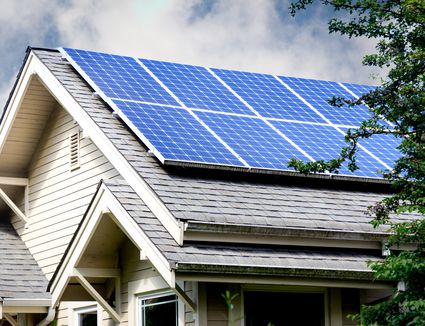Alternative Energy Tips

There are a number of ways that you can minimize your home’s energy use, ranging from minor tweaks in your behavior to major home improvements. Here are a few tips on how to save energy and electricity in the home and basic information on the use of and benefits of solar panels.
Three Ways to Conserve Energy in Your Home
1. Make Minor Tweaks to Your Daily Behavior
Energy consumption reduction doesn’t mean that you need to go out and buy expensive energy efficient products. It can be something as simple as turning off appliances and lights when they are no longer needed. Behavioral adjustments that have the highest return include turning the heat down on the thermostat in the winter and using the air conditioner less during the summer.
2. Replace Inefficient Light Bulbs with More Efficient Ones
Traditional incandescent light bulbs use a lot of energy and need to be replaced with greater frequency than energy efficient light bulbs. LEDs use up to 80 percent less electricity and can last up to 25 times longer than traditional light bulbs. Although energy efficient light bulbs are more expensive when you first purchase them, they save a ton of money in the long run.
3. Use Smart Power Strips
The electricity used by electronics when they are in standby mode wastes a lot of energy. It has been estimated that up to 75 percent of energy used powering home electronics is consumed when the electronics are turned off. In some homes, this can cost in excess of $200 a year. Smart power strips make the problem of phantom loads disappear. They shut down electronics when they are not in use.
Eco-Friendly Energy Alternatives
There are a number of eco-friendly alternatives for energy use. Some of these are being used right now, and others are planned to have a larger impact in the future.
1. Hydrogen Gas: Hydrogen gas is a completely clean burning fuel. It only emits warm air and water vapor when used as fuel.
2. Tidal Energy: This is a relatively new technology that has limitless potential. One report estimated that this form of energy could meet up to 20 percent of the UK’s electric demands.
3. Biomass Energy: Biomass energy is produced in numerous forms. Wood is the most common biomass used to create heat. Recently, researchers have been evaluating how trash in landfills, alcohol products, and other biomass can be used.
4.In the past few years, solar energy has become much more mainstream in terms of energy use. A number of homes and factories are opting for solar air conditioner to improve their energy needs and requirements. It is durable, has lower costs and does not require as much maintenance as a normal air conditioner does.
Using Solar Panels for Your Home and Business
Solar panels, when used in conjunction with a deep cycle battery, can be a viable alternative energy source that can be used right now.
Some of the pros of solar panel use include:
- Lower electric bill
- Improved value of your home or office
- A reduced carbon footprint
- A counter agent to rising electricity costs
The cons of solar panel use include:
- They don’t work on every type of roof
- The initial investment is expensive
- If your initial energy costs are low, the savings benefits from solar panels are also low
Solar energy is truly an untapped resource. One hour of the sun’s energy could meet the global energy demands for one year. Solar energy systems generally don’t need a lot of maintenance. You just need to keep them clean.
Solar panels are not the only upgrade you can do to your home or workplace. You can replace high-energy appliances with more energy-efficient versions. Replace standard thermostats with programmable thermostats. Install new doors and windows to combat outdoor temperature changes. Or purchase more efficient water systems.
Taking steps to conserve energy in the long term can reduce the amount of money you spend on energy. It also shows that you are a caring steward of the planet and want to protect our limited resources.